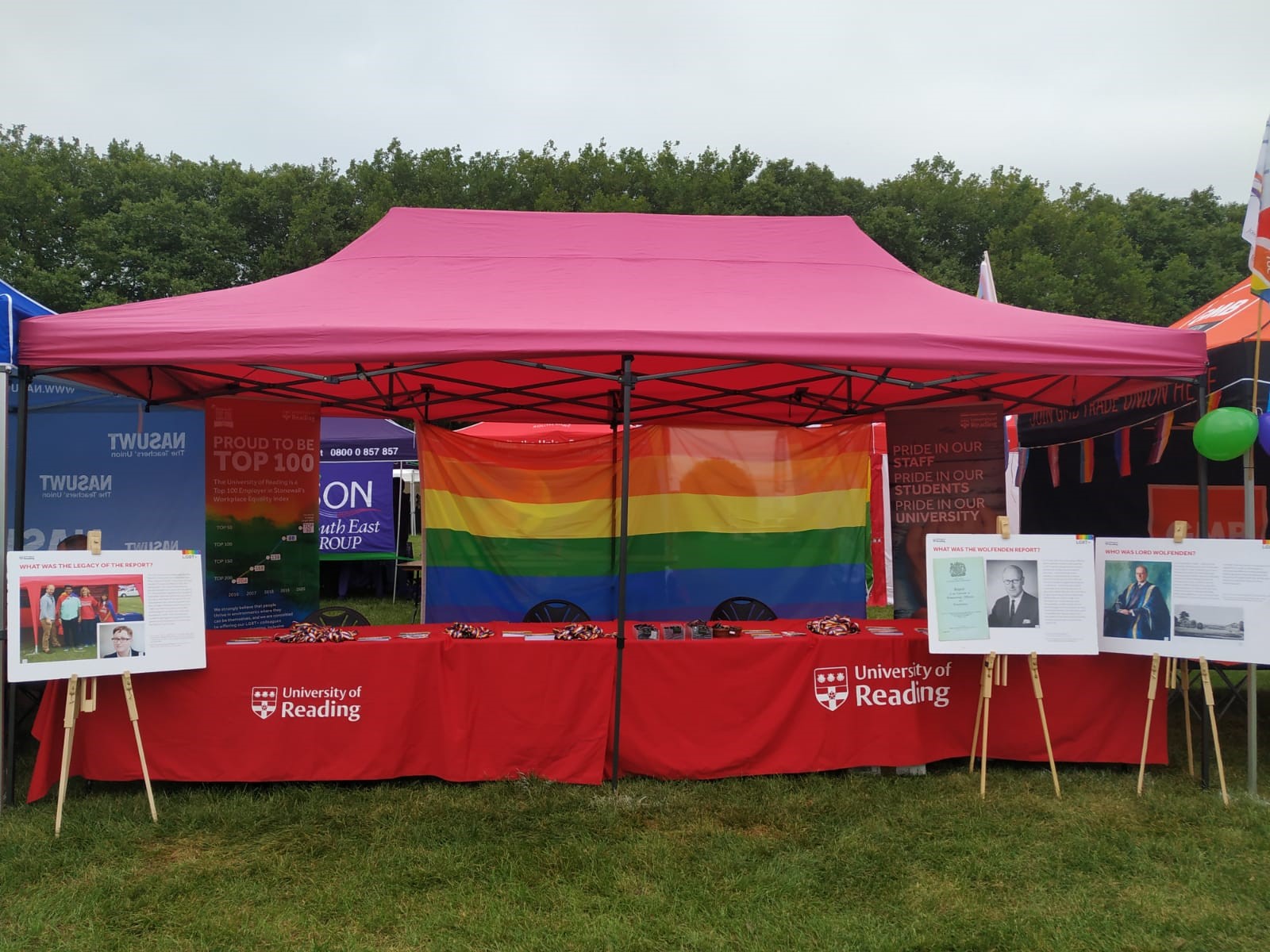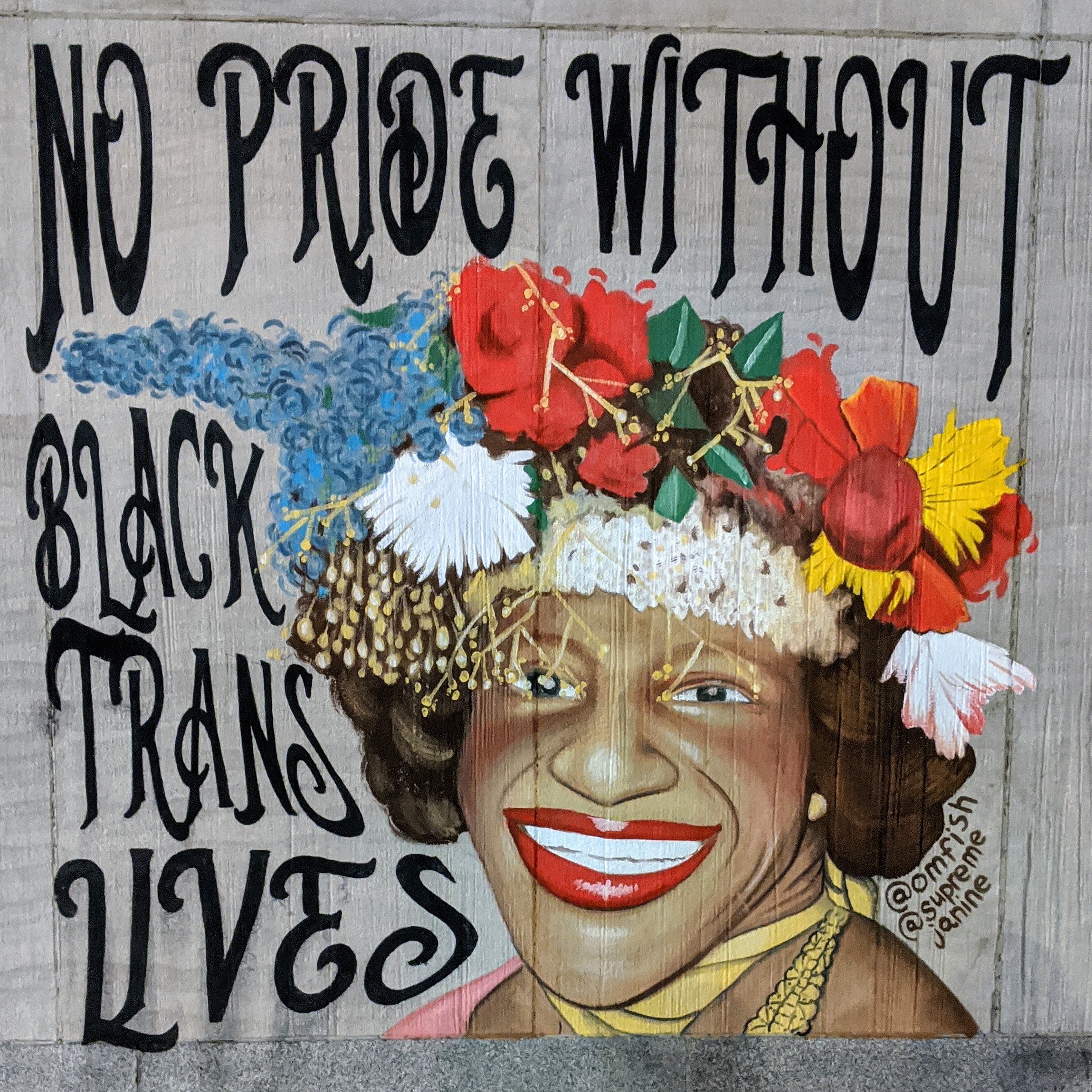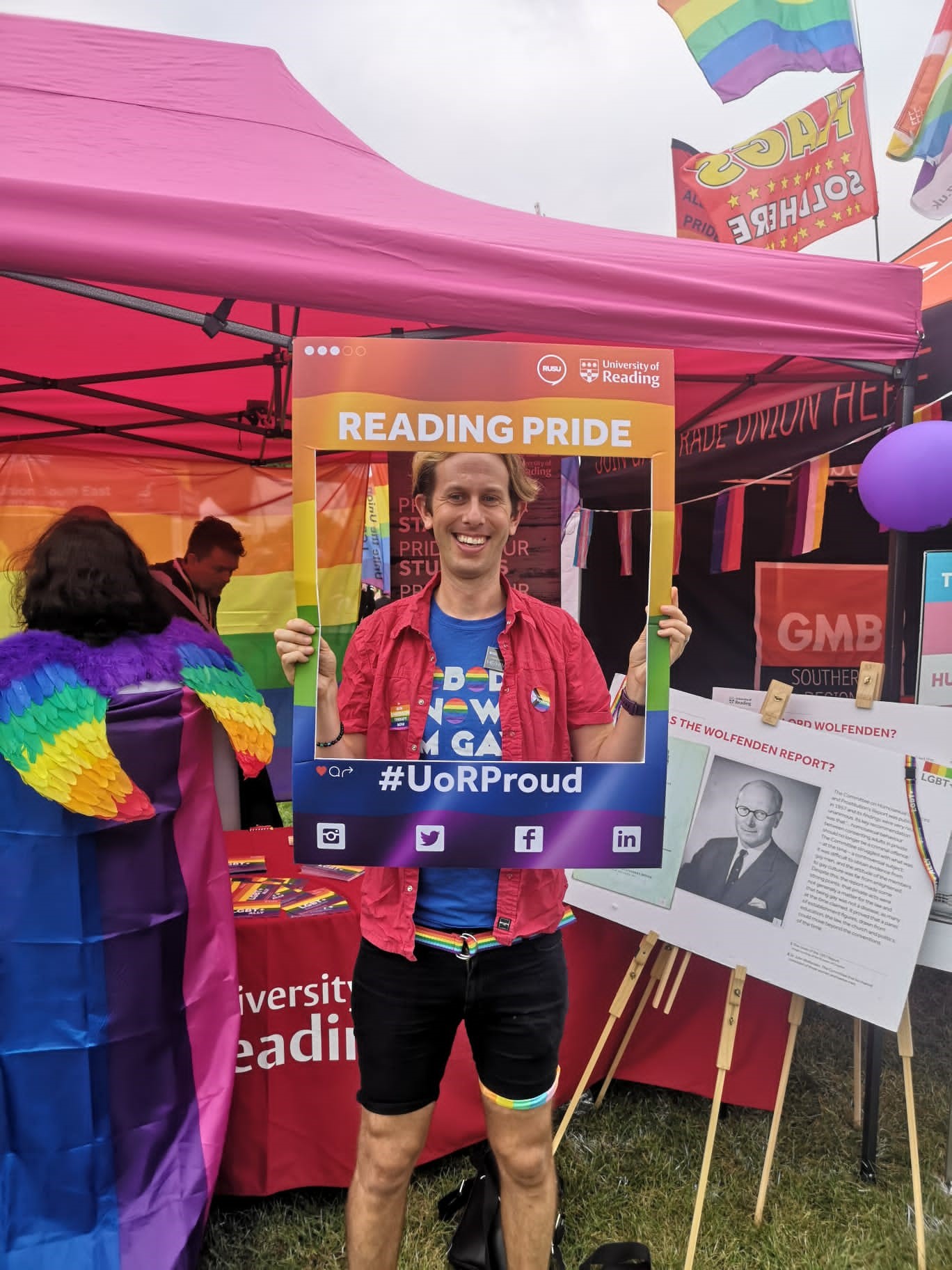Trigger warning: This article contains references to self-harm and domestic violence.

Bi Visibility Day is marking it’s 23rd Year and we are excited to acknowledge and celebrate our Bi colleagues and students and remind our Ally colleagues and students that even after 23 years of marking this day, there are still challenges to overcome for this community within the LGBT+ community.
As it falls on the 23rd of September, we thought we could go through 23 things to remember this Bi Visibility day:
23 Things to Remember on Bi Visibility Day:
-
No more erasure!
Bi Erasure is a pervasive issue where the legitimacy and/or existence of bi identities is denied. Here are some ideas to help your bi friends fight invisibility and erasure.
-
Avoid assumptions
Avoid making assumptions based on someone’s previous or current partner. Follow their lead on language they use to define their relationship or identity and be aware that this could be fluid and subject to change.
-
‘Bi’ is an umbrella term
Bi is a word we can use to describe several identities, attractions, and orientations. According to bi.org:
“Terms that fall under the bi umbrella include pansexual (attraction to all genders, with a political emphasis on nonbinary gender identities), polysexual (attraction to multiple sexes), omnisexual (attraction to all sexes), and multisexual (attraction to multiple sexes). Some people prefer the term fluid meaning that their attractions are not fixed and include people of more than one sex over time. “
-
Be an Ally!
You can join the LGBT+ Staff Network as an Ally, as well as signing up to our Bi inclusion training and learn about ways to support your bi colleagues. You can also pick up an UoR LGBT+/LGBT+ Ally lanyard and pronoun badge when you’re on campus to be a visible Ally! These are free to pick up at various places across campus including Whiteknights House reception and the Students’ Union reception.
You can also check out this ‘10 Ways You Can Step Up as an Ally to Bi People‘ article over on the Stonewall website.
-
One in two 18-24 year olds in the UK do not identify as 100% straight
A study by YouGov, using the Kinsey scale, allows people to place themselves along a sexuality scale. Taken as a whole, 23% of the British public do not identify as straight.
-
Bi people make up nearly half of the LGBT+ community
According to a 2013 Pew research centre survey, bi people make up 44% of the LGBT+ community. MyUmbrella, who champion inclusion within the LGBT+ community in Reading, made this podcast last year talking about why we still need Bi Visibility day.
-
Recognise and challenge biphobia
If you witness biphobia or bi erasure, and you feel safe to do so, challenge this behaviour. You can use the University’s method for calling out (or calling in) detrimental behaviour, the UHT method – Getting involved – call out bad behaviour.
You can also report this behaviour using the University’s reporting procedures – Harassment reporting and support.
-
Uplift and support marginalised bi people
This can be done by everyone within the bi community, as well as all allies.
BAME bi people are further marginalised and discriminated against within the bi community, Ace bi people are erased and excluded, bi men face stigma from the LGBT+ community and so on. Intersectionality within the bi community often leads to further inequality. You can help fight this by seeking out and supporting bi groups who explicitly support those people who identify as having multiple, or intersecting, protected characteristics.
Bi’s of colour, an organisation created “cos bisexuality isn’t just for white folks” sadly shut down operations this year, but you can read Bi’s of Colour History report in 2015.
-
Bi people have always been here
Being bi isn’t a new way to identify, nor is it a phase or a trend. Take a look through some of the iconic bi people throughout history – Historical figures who are bi icons
-
Use inclusive language
Be aware of, and curious about, the language you use. Do you use the word ‘gay’ as a catch-all term? Could this be inadvertently erasing someone’s bi identify? Remember that asking lots of questions so that you are clear on someone’s identity can be harmful, so keep an open, empathic mind. The Stonewall Glossary of terms is a useful resource.
-
Bi people face unique mental health challenges
In a review of depression and anxiety among bi people, meta-analysis of approximately 52 eligible studies, found that:
“consistent pattern of lowest rates of depression/anxiety among heterosexual people, while bisexual people exhibit higher or equivalent rates in comparison to lesbian/gay people.”
-
Bi people face unique parenting challenges
Bi people are almost twice as likely to be parents than gay or lesbian people, and some may find it tricky to know how or when to ‘come out’ to their children. You can read about some of the lived experiences of bi parents in this article How Do Bi Parents Come Out to Their Kids?
The parent and family network recently held an event in conjunction with the LGBT+ staff network, focused on LGBT+ parenting.
-
The majority of people of all generations in the UK now accept the idea that sexual orientation exists along a continuum rather than a binary choice
YouGov states that overall 60% of straight people support this idea, and 73% of those who identify as LGBT+.
-
Young bi people and self-injury
According to University of Manchester researchers, young bi people are up to six times more likely to engage in non-suicidal self-injury. Further research is being done into this issue, you can find out about the study here Self-Injury in young Bisexual people: A Longitudinal investigation (SIBL)
-
Bi people face high levels of discrimination at work
A Stonewall report on bi people in the workplace, found:
“Bisexual staff are, they felt, subjected to assumptions that they may find demeaning or inappropriate.”
-
Make LGBT+ spaces inclusive
It is important that LGBT+ spaces review their inclusivity and recognise any challenges. We introduced a position of ‘Bi role model’ into our LGBT+ staff Network
-
61% of bi women and 37% of bi men experience intimate partner violence.
According to a study, bi people experienced the highest rates of violence by an
intimate partner. In Reading there are several organisations you can reach out to including Trust House, Alana House, and Berkshire Women’s Aid.
-
Support bi organisations and campaigns
Find national and local organisations that you can support, such as:
-
Make sure your workplace, university or school is inclusive
At the University of Reading, some of the ways you can support bi people are joining the LGBT+ Staff Network, taking Bi inclusion training, joining RUSU LGBT+ society.
In Reading town, SupportU are and LGBT+ organisation who can offer a professional consultancy and tailor training for local businesses and organisations.
Stonewall are a larger organisation who share best practice and toolkits, provide training and a benchmarking tool. The University of Reading continues to be among Stonewall’s Top 100 Employers, according to the 2020 Stonewall Workplace Equality Index.
-
The Bi Pay Gap
‘INVISIBLE MAJORITY’ a US report on the disparities facing bi people, shows that 48% percent of bi respondents report a lower annual family income compared to 28% of all adults in the United States.
-
Support bi people to live full and complex lives, like everyone else!
Bi people can be further stigmatised if they are seen to ‘fit’ into stereotypes. Bi people can live every bit as complex and nuanced lives as those who do not identify as bi. Affirm your friends, colleagues and family members identities and relationships and remember the harm that can be caused by stereotyping.
-
Positive Bi representation in the media
Representation is so important because of the link between societal attitudes towards bi people, and their portrayal in mainstream media. GLAAD’s ‘Where we are on TV’ report.
-
Celebrate bi people!
Amplify the voices and experiences of bi people. Celebrate days like Bi Visibility Day. Search social media for bi content creators, learn and share their content.
Further Resources:












